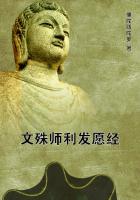But all this is not really what the economists are concerned about in the general part.It is rather --see for example Mill --that production,as distinct from distribution etc.is to be presented as governed by eternal natural laws which are independent of history,and at the same time bourgeoisrelations are clandestinely passed off as irrefutable natural laws of society in abstracto.This is the more or less conscious purpose of the whole procedure.As regards distribution,however,it is said that men have indeed indulged in a certain amount of free choice.Quite apart from the crude separation of production and distribution and their real interconnection,it should be obvious from the outset that,however dissimilar the mode of distribution at the various stages of society may be,it must be possible,just as in the case of production,to emphasize the common aspects,and it must be likewise possible to confuse and efface all historical differences in laws that are common to all mankind.For example,the slave,the serf,the wage-worker,they all receive an amount of food enabling them to exist as a slave,serf or wage-worker.The conqueror who lives on tribute,or the official who lives on taxes,or the landowner who lives on rent,or the monk who lives on alms,or the clergyman who lives on tithes,all receive a portion of the social product which is determined by different laws from the portion of the slave,and so on.The two principal factors,which all economists include in this section,are:
(1)property,and (2)its protection by the judiciary,police,etc.
Only a very brief reply is needed:
Regarding (1):production is always appropriation of nature by an individual within,and with the help of a definite social organization.
In this context,it is tautological to say that property (appropriation)is a condition of production.But it is quite ridiculous to make a leap from this to a distinct form of property --e.g.private property (this is,moreover,an antithetical form,which similarly presupposed non-propertyas a condition).History has shown,on the contrary,that common property (e.g.among the Indians,Slavs,ancient Celts,etc.)is the original form,and in the shape of communal property it plays a significant role for a long time.The question of whether wealth develops faster under this or under that form of property is not yet under discussion at this point.It is tautological,however,to state that where no form of property exists,there can be no production and hence no society either.Appropriation which appropriates nothing is a contradiction in terms.
Regarding (2):Safeguarding of what has been acquired,etc.If these trivialities are reduced to their real content,they say more than their authors realize --namely that each mode of production produces its specific legal relations,political forms,etc.It is a sign of crudity and lack of comprehension that organically coherent factors are brought into haphazard relation with one another --i.e.into a simple reflex connection.The bourgeois economists have merely the view that production proceeds more smoothly with modern police than (for example)under club-law.They forget,however,that club-law too is law,and that the law of the stronger,only in a different form,still survives even in their "constitutional State".
While the social conditions appropriate to a particular stage of production are either still in the course of evolution,or already in a state of dissolution,disturbances naturally occur in the process of production,although these may be of varying degree and extent.
To recapitulate:there are categories which are common to all stage of production and are established by reasoning as general categories;the so-called general conditionsof all and any production,however,are nothing but abstract aspects which do not define any of the actual historical stages of production.
Marx intended this to be the Introduction to his Contribution to a Critique of Political Economy(1859),but,as his Preface to that work notes,he decided to omit it.
The unfinished rough draft,which was found among Marx's papers after his death.First published 1903,in Die Neue Zeit.Would become the first manu in the Grundrisse.
I.PRODUCTION,CONSUMPTION,DISTRIBUTION,EXCHANGE (CIRCULATION)2.The General Relations of Production to Distribution,Exchange and Consumption Before starting upon a further analysis of production,it is necessary to consider the various sections which economists place alongside it.














